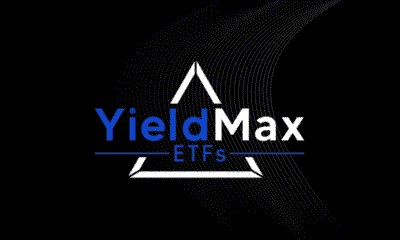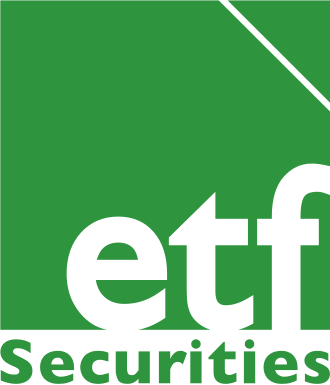ETF Securities Equity Research: The rebalancing of the Australian economy is the cornerstone of its resilience
Highlights
• Stronger business confidence picks up momentum offsetting some of the weak consumer confidence.
• Chinese growth has stabilised, its demand for exports from Australia is strong, but momentum will gradually decline in line with the slowing rate of urbanisation in China.
• The housing cycle is easing but a robust mortgage system, lower foreign investor reliance coupled with stable debt service payments emphasise that a crash is avoidable.
Australia defies doomsayers
Australia is the only OECD country since 1970 known to have withstood the longest period, 104 quarters in a row, without a recession. Despite numerous forecasts of an impending recession, the resource driven Australian economy withstood the demise of the commodity boom. Since the 1970s, several reforms such as – the floating of the exchange rate, RBA inflation targeting and labour market microeconomic reform, improved the flexibility of the economy. We remain convinced that the rebalancing of economic activity and the improvement in productivity will enable it to withstand the slowdown in the housing cycle.
While second quarter GDP growth rose to 0.8%, the annual pace of expansion at 1.8% remains below its potential (at around 3%). We believe the lingering effects of tropical cyclone Debbie, on construction and coal exports, was a drag on Q2 GDP growth, and its temporary effects are likely to reverse.
Business confidence remains upbeat
Record high household debt levels coupled with sluggish wage growth has weighed on consumer confidence. As housing accounts for more than 50% of household wealth, the decline in house prices has lowered household wealth thereby dampening consumer consumption. Amidst this backdrop consumer spending (at nearly 60% of GDP) is likely to remain subdued in the near term. Meanwhile, business confidence surpassed consumer confidence in 2014 and its positive momentum provides signs that business investment could plug the gap left behind by consumer spending.
Furthermore capital expenditure in the private sector and mining industry are starting to rebound from current low levels. Public infrastructure investment, led by the state is up 9.5% over the prior year. Services exports, led by tourism and education are continuing to strengthen, aided by a weaker currency, and Australia is well positioned to benefit from the growing Asian middle class.
China’s commodity import demand to unwind gradually
Among all OECD nations, Australia remains the most dependent on China as it accounts for more than a third of all exports. Despite widespread fears of a slowdown in China, growth in China has stabilised. While China’s growth momentum slowed marginally on a quarterly basis, an improvement in retail sales and industry output is pointing to robust growth heading into next year. Additionally, a 19.8% growth in infrastructure spending over the prior year strengthens the case for a continuation of commodity demand. Bulk commodities represent a quarter of Australia’s total exports led by iron ore and coal. We are still seeing demand for steel (which uses iron ore and coking coal) and electricity (generated by thermal coal) remain strong.
At the same time, there has been a fall in Chinese production of iron ore and coal, owing to lower profitability and compliance with environmental regulations. This has increased demand for imports from Australia. Looking ahead, the Reserve Bank of Australia (RBA) is forecasting a slowdown in China’s urbanisation rate to gradually impact demand for iron ore and coking coal over the coming decade.
Housing sector looks stretched
House prices in Australia have continued their meteoric rise since the start of the decade, more so in Sydney and Melbourne while less in Brisbane and Adelaide. During 2000’s, the rate of building construction failed to keep pace with the rising population growth, providing an incentive for a surge in house supply.
Rising supply coupled with tighter lending standards and poor affordability has left the housing sector overstretched. Consequently, building approvals and dwelling investments are declining. Australia’s mortgage system has robust underwriting rules in place that operate on a full recourse basis. In addition, interest payments to quarterly disposable income have remained stable. For these reasons, we do not expect to see a repeat of the US subprime mortgage crisis in Australia. We hold the view that the RBA will maintain interest rates at 1.5% until the end of next year thereby helping households continue servicing their loans.
So far, Australian residential real estate prices remained buoyed by the steady stream of Chinese immigrants buying property at record valuations. Recent data from the Foreign Investment Review Board (FIRB) in May highlight a 60% y-o-y decline in volume of real estate investment approvals sought by Chinese residents. We believe these risks are largely contained as the National Australia Bank (NAB) estimates foreign investors account for only 11% and 7% of new and established home sales respectively.
Australian equities lack innovation
Australian equities have posted a mediocre gain of 5.7% since the start of the year lagging global peers by 12% and the technology sector by 34%. Their lagged performance highlights a critical theme lacking in Australian equities – technology and innovation. While current valuations at 5.3x are well below their historical average, we are of the opinion that unless Australia displays entrepreneurship in the technology sector, they will fail to attract foreign investors.
Despite record high household debt, and a slowdown in the housing cycle and mining investment (6.8% of GDP), we are convinced that the resilience of the Australian economy will help it avoid a recession as it has done for the last 26 years.
For more information contact:
Catarina Donat Marques
ETF Securities (UK) Limited
T +44 20 7448 4386
E catarina.donatmarques@etfsecurities.com
Important Information
This communication has been issued and approved for the purpose of section 21 of the Financial Services and Markets Act 2000 by ETF Securities (UK) Limited (“ETFS UK”) which is authorised and regulated by the United Kingdom Financial Conduct Authority (the “FCA”).
The information contained in this communication is for your general information only and is neither an offer for sale nor a solicitation of an offer to buy securities. This communication should not be used as the basis for any investment decision. Historical performance is not an indication of future performance and any investments may go down in value.

 Nyheter3 veckor sedan
Nyheter3 veckor sedan
 Nyheter3 veckor sedan
Nyheter3 veckor sedan
 Nyheter4 veckor sedan
Nyheter4 veckor sedan
 Nyheter3 veckor sedan
Nyheter3 veckor sedan
 Nyheter4 veckor sedan
Nyheter4 veckor sedan
 Nyheter3 veckor sedan
Nyheter3 veckor sedan
 Nyheter4 veckor sedan
Nyheter4 veckor sedan
 Nyheter4 veckor sedan
Nyheter4 veckor sedan






















